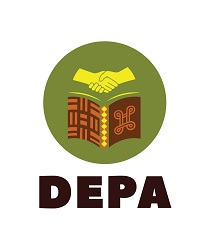Abuja Peace Clubs Project
Introduction
The Peace Clubs Project took place in Abuja, Nigeria at 2 government run secondary schools and 2 Accelerated Learning Hubs. The catchment area was in the locality Education Plus runs most of their services. From Apo Resettlement Area to Wassa, Abuja.
For the purpose of how Education Plus would like to move forward with their Peace work this report will be based on the experience of the 2 government run Senior Secondary Schools.
The project was funded by the DEPA Project and PADEAP.
The project was run by Education Plus, a fully registered Nigerian NGO as part of their Teacher Training programme.
Research Context
The 2 schools are both Senior Secondary Schools. The Nigeria school system operates through students attending 6 years Primary School education, 3 years Junior Secondary School education, 3 years Senior Secondary School education and finally 4 years first degree education at university.
Under Nigeria’s Universal Basic Education Policy Primary school education and Junior Secondary School education is compulsory by law. However, Nigeria has the largest out of school population in the world and this starts from Primary school level. The Northern states in Nigeria have the worst education attendance rates than the Southern states of Nigeria.
The Federal Capital Authority Abuja where the 2 senior secondary schools are situated is regarded as part of the North.
Most students that attend state run schools come from the lower socio-economic segment of Nigeria’s population and high majority of state run schools are overcrowded, poorly staffed, under resourced and many of the buildings are in various states of disrepair. On top of that many states do not pay staff salaries on a regular basis, so it is common for teachers in state run schools to be owed salaries for months.
However, there are states that do try to provide a “good enough” level of state-run Education.
The experience of the research team is that Senior Secondary schools in Abuja seem to be better resourced than Primary and Junior secondary schools, which may be due the smaller number of Secondary versus Primary/Secondary.
All 106 government Senior Secondary schools are run and monitored by Abuja Secondary Education Board.
The Process
Initial Peace Facilitators Training:
This took place over 3 days teachers from the 2 senior secondary schools and the 2 accelerated learning hubs Education Plus attended.
The training comprised of the following
Day 1 – training on the concepts of violence, conflict and peace and how they are related.
Here we briefly explored and reflected on the concepts of:
- Violence (Direct, Cultural and Structural), why people use violence on an interpersonal level and some consequences of using violence at an interpersonal level.
- Interpersonal Conflict, what it is and why it’s importance and how interpersonal conflict can be escalated and deescalated
- Peace, what it means at an interpersonal level, negative peace vs positive peace and can there be peace without justice
It’s important to note as we are dealing with students in their school and community environments, I felt that for it to be relevant first we need to deal with the issues of violence, conflict and peace from an interpersonal level. That is the level that both the teachers and most of the students would first experience violence and conflict in the first instance.
Feedback from both the initial training and the final teachers evaluation felt this was part of the reason for the succes of the Peace Clubs in their schools.
Days 2 and 3 – an experienced community artist was brought in to give the participants lessons on how to use painting/design work, role play, spoken word, poetry, song and dance to explore the topics of violence, conflict and peace with their students.
Participants where taken through how to work with the above tools and spent time directly using the tools to learn by direct engagement., and as such, the participants did painting and poster designs and came up with role plays and spoken word, songs and dancing.
Finally on Day 3 time was also spent on how to create safe spaces for their students and ways for the teachers to facilitate the Peace Clubs that will encourage open dialogue.
Teacher Feedback
The end of project evaluation exercise took place in 2 formats
First was a group meeting immediately after the end of the Peace Clubs for the summer holidays
Here the 4 teachers spoke about enjoying the opportunity of facilitating the students in the Peace Clubs.
They agreed their participation in the Peace Clubs has added to their experience and confidence of addressing issues around violence, conflict and peace with the students. They also indicated that the experience has had a positive impact on how they deal with interpersonal conflict both at school and in their personal life. On a practical level they also felt it was a good idea to provide snacks to the students during their weekly meeting.
From interaction with the Peace Club students the teacher felt that the students also benefited from it and that the arts methodology worked very well with senior secondary school students. The students especially liked being given a voice to present their ideas to the rest of the rest of the students in the schools via the whole school assembly presentation at the end of each month.
Yomi Oloko
Executive Director
Education Plus
Abuja, Nigeria

